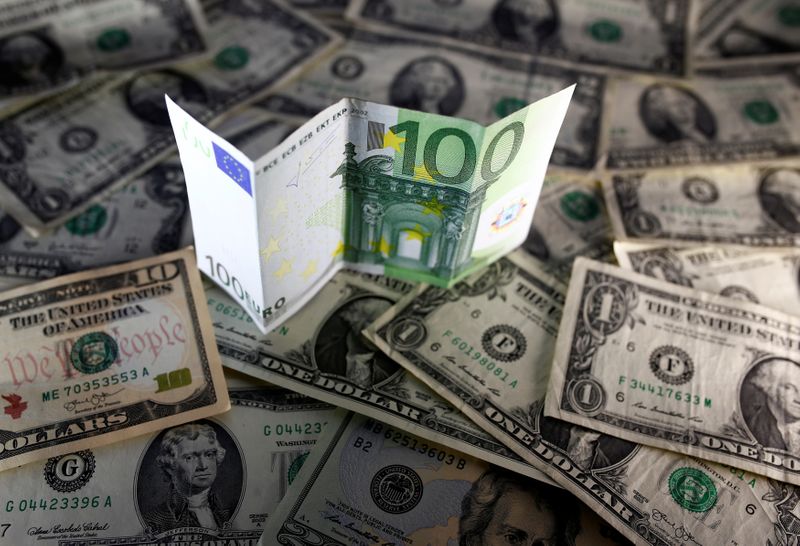By Tommy Wilkes and Ritvik Carvalho
LONDON (Reuters) - This time it's different. Unlike recent surges, the dollar's ongoing advance may be handing Europe an export advantage, by driving the euro to three-year lows against trade partners' currencies.
A weakened euro has frequently irked U.S. President Donald Trump, who grumbles that a "devalued" euro gives the region's exporters an unfair advantage. But those claims did not usually stack up, because previous dollar rallies did not see the euro tumble on a trade-weighted basis.
Now, though, the dollar is flexing its muscles, just as the global newsflow, economic data and option market positioning are working against the euro.
(Graphic: U.S. and euro economic surprises - https://fingfx.thomsonreuters.com/gfx/mkt/13/2329/2297/euro%20surprises%20index.png)
An index
(Graphic: Euro trade-weighted index falls to lowest since 2017 - https://fingfx.thomsonreuters.com/gfx/mkt/13/2330/2298/euro_TW.png)
The move is all the more striking because of shifting trade patterns, which have swelled emerging-market currencies' share in the trade-weighted basket at the expense of the dollar. China's yuan accounts for around 23%, almost tripling since 2003, while the dollar's weight has shrunk to 17% from 22%.
The euro has lost 2.7% of its value against the Chinese offshore yuan since the start of the year
European politicians will - privately at least - welcome the euro's trade-weighted drop - the stuttering German economy clearly needs a boost for its exporters.

But the weakness may raise hackles in Washington and Bern -- currency markets will be on red alert for any comments from Trump.